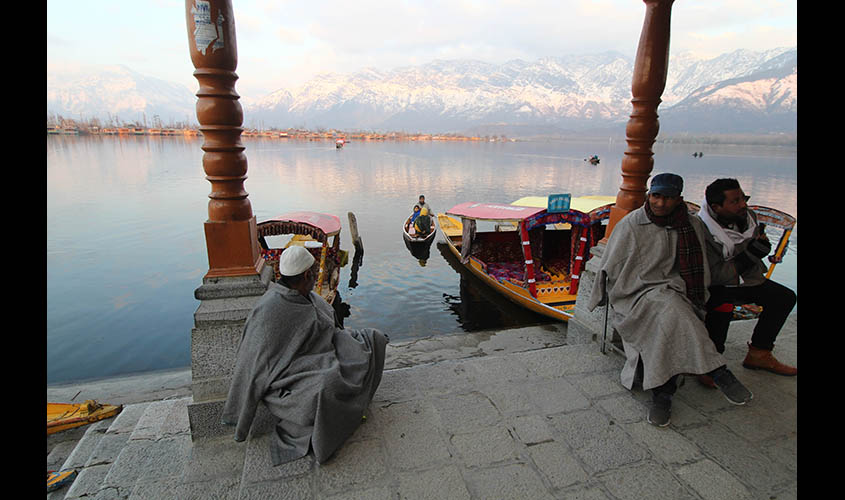Srinagar: The Jammu and Kashmir government is busy preparing the ground for the Gulmarg conclave where major film production houses have been invited at the end of December this year. In this direction, authorities have started preparations to give boost to tourism.
However, stakeholders in the tourism sector in Kashmir have no hopes from such events as curbs on internet and pre-paid mobile services continue here since the abrogation of Article 370 on 5 August.
Hoteliers and houseboat owners have in the recent past requested the government to lift curbs on internet and pre-paid mobile services for tourists to come to Kashmir.
“For the tourists to return, the first requisite is lifting the ban on internet services. There won’t be any influx of tourists without reinstallation of internet services,” said Faiz Ahmad, a hotelier in Kashmir.
However, hoteliers in Gulmarg are very happy about the mega event. “Such events will give a boost to the tourism business and if Bollywood directors come to Kashmir with their crew and staff, it would boost our hopes,” said Ali Muhammad of Tangmarg, who runs a hotel in Gulmarg. He said that there is a lot of snow in Gulmarg and he was optimistic about receiving tourists in bulk.
The worst sufferers are shikara rowers, who have barely seen any customers since the clampdown. According to Wali Muhammad Bhat, president of the Shikara Owners’ Association, there are 4,800 shikaras rowing along different water-bodies of Kashmir. There are 960 houseboat owners in the Dal and Nageen lakes. “We have loans which could not be repaid due to the lack of tourism in the valley and there is no government compensation scheme for such families,” said Ghulam Ahmad Mattoo, one of the shikara rowers in the Dal Lake.
Lieutenant Governor Grish Chandra Murmu addressed the media, saying that the government will lift the ban on internet services in a phased manner without any time frame.
“We are aware of the concerns and difficulties of those who are connected with the tourist business in Kashmir and we will redress their concerns,” a senior officer of the tourism department told this newspaper.
When the Central government abrogated Article 370, it had promised a new dawn in areas of business and development. “We are already in the fifth month since the abrogation but there has been no change on the ground and we have only suffered further,” said Muneer Ahmad Dar, who lost his job along with hundreds of others as many businesses collapsed in Kashmir because of the clampdown.
Recently, the All Traders Coordination Committee Kashmir (ATCCK) in a press conference estimated the loss to the business sector at Rs 75,200 crore since the clampdown. The trade body said that the capital loss has been estimated to the tune of Rs 16,11,850 crore. It also claimed that at least 10 lakh jobs were lost in Kashmir during the same period.
The ATCCK also released a sector-wise statistical report about the losses suffered in Kashmir. According to the report, till 15 November, general trade has suffered to the tune of Rs 30,000 crore.
Apple trade and other limbs of the horticulture sector suffered due to non-transportation of the fruit and untimely snowfall. Losses to this sector have been estimated at Rs 8,000 crore.
The tourism sector has lost on all fronts and Kashmir alone suffered around Rs 33,000 crore. Similarly, industrial losses can be estimated to be around Rs 2,000 crore and the transport sector lost at least Rs 700 crore.
The IT industry suffered a loss of Rs 15,000 crore. While the horticulture sector has suffered loss of Rs 4,000 crore, the tourism and hotel industry suffered Rs 950 crore. The telecom sector in the general trading category has suffered Rs 300 crore.
Thousands of youths are waiting for the government to announce some package or normalise the situation so that they can get their jobs back in the private sector.
Aleem Ahmad, who was an executive in the IT sector, said: “We don’t know what to do in the current situation, but after the winter, we would be forced to look for jobs outside Kashmir.”

